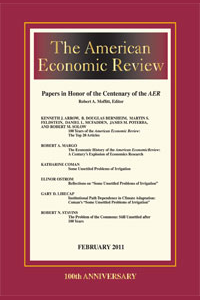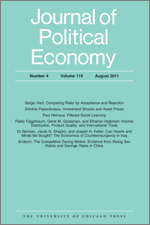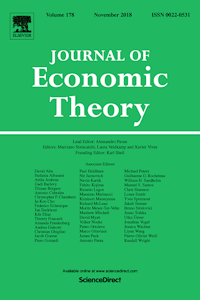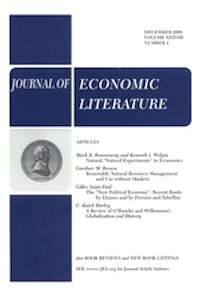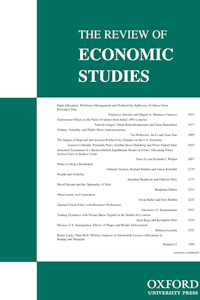
Ambrus, A. and Elliott, M.
Investments in Social Ties, Risk Sharing, and Inequality
Review of Economic Studies
Vol. 88(4) pp. 1624–1664 (2021)
Abstract: This article investigates stable and efficient networks in the context of risk sharing, when it is costly to establish and maintain relationships that facilitate risk sharing. We find a novel trade-off between efficiency and equality: the most stable efficient networks also generate the most inequality. We then suppose that individuals can be split into groups, assuming that incomes across groups are less correlated than within a group but relationships across groups are more costly to form. The tension between efficiency and equality extends to these correlated income structures. More-central agents have stronger incentives to form across-group links, reaffirming the efficiency benefits of having highly central agents. Our results are robust to many extensions. In general, endogenously formed networks in the risk-sharing context tend to exhibit highly asymmetric structures, which can lead to stark inequalities in consumption levels.
Author links: Matthew Elliott
Publisher's Link: https://doi.org/10.1093/restud/rdaa073 ![]()
Cambridge Working Paper in Economics Version of Paper: Investments in Social Ties, Risk Sharing and Inequality, Ambrus, A. and Elliott, M., (2020)

